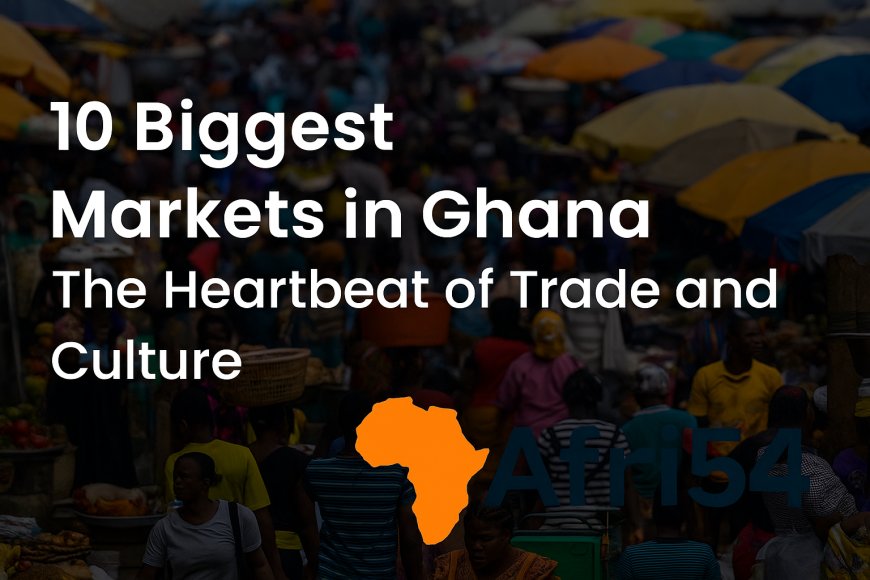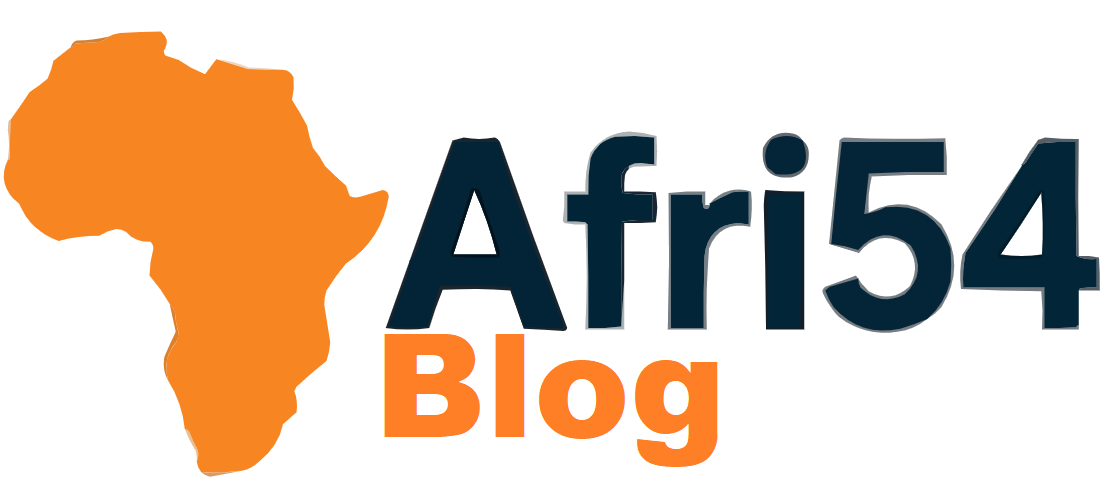10 Biggest Markets in Ghana: The Heartbeat of Trade and Culture
Explore the 10 biggest markets in Ghana — from Kejetia and Makola to Techiman and Tamale. Discover their history, goods, and role in Ghana’s vibrant economy and culture.

Reading Time: ~8 minutes
Ghana is a country where commerce and culture meet in vibrant marketplaces. From the buzzing streets of Accra to the historic trading centers of Kumasi and Tamale, markets serve as the lifeline of the economy and a showcase of Ghana’s rich diversity. Here’s a look at the 10 biggest and most influential markets in Ghana.
1. Kejetia Market (Kumasi, Ashanti Region)
Known as the largest open-air market in West Africa, Kejetia Market boasts over 11,000 stalls and tens of thousands of traders. You can find virtually everything here — from clothing, jewelry, electronics, and textiles to vehicle spare parts and local delicacies. For many, Kejetia is more than a marketplace; it’s a city within a city.
2. Makola Market (Accra, Greater Accra Region)
Located in the heart of Ghana’s capital, Makola Market is a dynamic trading hub. Renowned for colorful fabrics, wax prints, cosmetics, jewelry, and household goods, it also offers a lively atmosphere where bargaining is an art. It remains a symbol of women-led enterprise, with many stalls run by market women.
3. Kotokuraba Market (Cape Coast, Central Region)
Kotokuraba Market is a key hub in the Central Region, serving both locals and traders from surrounding towns. Fresh fish, vegetables, fruits, clothing, and household items are sold in abundance. Its modern redevelopment has given the market a facelift, making it more organized yet still vibrant and traditional.
4. Tamale Central Market (Tamale, Northern Region)
This is the largest market in northern Ghana, filled with northern cultural richness. It is famous for shea butter, leather goods, livestock, cereals, and the region’s iconic smocks. Tamale’s market highlights Ghana’s connection to trans-Saharan trade routes that date back centuries.
5. Kaneshie Market (Accra, Greater Accra Region)
Kaneshie is a multi-story market complex that bustles with activity daily. Fresh produce, clothing, traditional medicine, and fabrics are major attractions. Situated on the main Accra-Kumasi road, it serves as a trading hub not only for Accra residents but also travelers passing through the capital.
6. Agbogbloshie Market (Accra, Greater Accra Region)
Agbogbloshie is Ghana’s largest foodstuff distribution market. Trucks from farming communities across Ghana arrive daily with onions, tomatoes, yams, maize, and peppers. It is a lifeline for Accra’s food supply, though also known for its nearby scrap yard — one of the largest e-waste sites in the world.
7. Takoradi Market Circle (Takoradi, Western Region)
A unique circular market structure, this trading hub dominates Takoradi’s commercial life. From fish and spices to clothing, spare parts, and electronics, it’s a bustling hub of trade. The market is also a melting pot of cultures due to Takoradi’s role as a major port city.
8. Techiman Market (Techiman, Bono East Region)
Often called the “food basket of Ghana”, Techiman Market is one of the country’s largest agricultural trading centers. Farmers from across Ghana and even neighboring countries bring yam, maize, plantain, vegetables, and livestock for sale. On market days, it attracts tens of thousands of traders and buyers.
9. Madina Market (Accra, Greater Accra Region)
Located in Accra’s bustling Madina suburb, this open-air market is one of the biggest in the capital. From foodstuff and fresh produce to fabrics, footwear, and imported goods, it’s a favorite for bargain hunters. Its diversity reflects Accra’s multicultural mix.
10. Ho Central Market (Ho, Volta Region)
The heartbeat of trade in the Volta Region, Ho Central Market thrives with activity. It is particularly known for cassava, maize, yam, textiles, kente cloth, and traditional crafts. A visit here is not just for shopping but also to experience Ewe culture and tradition.
Why Ghana’s Markets Matter
These markets are not just places to buy and sell — they are social and cultural hubs where communities connect, traditions thrive, and Ghana’s entrepreneurial spirit shines. From local farmers and artisans to large-scale traders, markets remain the economic backbone of the nation.
Final Thoughts
Ghana’s markets are a celebration of color, culture, and commerce. Whether you’re exploring the colossal Kejetia Market or experiencing the historic energy of Makola, every marketplace tells a story of resilience and trade.
Have you listed your business on Afri54?
Afri54 exists to solve a fundamental challenge faced by millions of African businesses: lack of visibility. Whether you’re an automobile part seller in Lagos, a local attire manufacturer in Kigali, a coffee exporter in Addis Ababa, or a mobile phone supplier in Accra, you deserve to be seen. Join Now






















